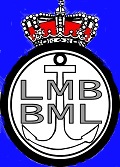

NIEUWS NOUVELLES NEWS
- Welcome
Accueil - Nieuws
Nouvelles- 26/11 Lower shipping emissions may lead to higher global temperatures
- 28/11 Prosecutors Seize Potentially Toxic Cargo from Cargo Ship Off Albania
- 30/11 President Biden Urges Foreign-Owned Port Employers to Improve Offer and End Dockworker Strike
- 03/12 Zombie Tanker Turns Up at Northern Chinese Port Laden With Oil.
- 05/12 Seafarer happiness has improved as sea time increased due to diversions away from Red Sea routes
- 07/12 Proposed IMO revenue generation mechanisms risk creating 'haves and have-nots', says NGO
- 10/12 Zenobe Gramme
- 12/12 Tweedaagse NAVY TECHNOFest toont Marine van de toekomst
- 14/12 Scheepvaartgroep CMB trekt stekker uit Maritieme Campus in Antwerpen
- 17/12 Prepare for attacks, best regards, says Houthi militia’s email to Red Sea ships
- 19/12 Mediterranean ECA to impact tanker trades
- 22/12 End of an Era: Historic SS United States Transferred to New Owners
- Kalender Calendrier
- BML Nieuws
LMB Nouvelles - Historiek
Historique- 18/11 De schipbreuk van de kotter Princess of Wales en de schoener l'Aventure (I)
- 25/11 De schipbreuk van de kotter Princess of Wales en de schoener l'Aventure (II)
- 02/12 Bereikten de Chinezen 70 jaar voor Columbus Amerika?
- 08/12 Een beetje geschiedenis (I)
- 15/12 Een beetje geschiedenis (II)
- 21/12 Een beetje geschiedenis (III)
- Dossier
Dossier
- 24/11 Red Sea gives shipping an Uber-style price surge
- 27/11 The Bridge: A Systems View.
- 29/11 False engine alarm causes collision
- 01/12 LNG as fuel for ships: expert answers to 17 important questions
- 04/12 50 years of keeping ships in business
- 06/12 Stricter inspections for tankers and bulkers
- 09/12 Court of Appeals Calls FMC “Illogical” Awarding D&D Fee Win to Evergreen
- 11/12 Shell 'pauses' Rotterdam SAF facility 'to assess the commercial way forward'
- 13/12 Driving efficiency and trust: DNV’s Emissions Connect in the new EU ETS landscape
- 16/12 MacGregor electric deck systems prove optimal for bulk carrier operations
- 18/12 Could Future Naval Battles Be Fought With Morse Code?
- 20/12 Corrupt port officials: what we all do to get by
- 23/12 Decarbonisation’s negative impact on seafarer workload and stress
- Raad
Comité - Verenigingen
Associations - Contacten
Contacts - Links
Liens - Boeken
Livres - Archives
Archieven- Archieven 1 - Archives 1
- Archieven 2 - Archives 2
- Archieven 3 - Archives 3
- Archieven 4 - Archives 4
- Archieven 5 - Archives 5
- Archieven 6 - Archives 6
- Archieven 7 - Archives 7
- Archieven 8 - Archives 8
- Archieven 9 - Archives 9
- Archieven 10 - Archives 10
- Archieven 11 - Archives 11
- Archieven 12 - Archives 12
- Archieven 13 - Archives 13
- Archieven 14 - Archives 14
- Archieven 15 - Archives 15
- Archieven 16 - Archives 16
- Archieven 17 - Archives 17
- Archives 18 - Archieven 18
- Archieven 19 - Archives 19
- Photos
Foto's
Proposed IMO revenue generation mechanisms risk creating ‘haves and have-nots’, says NGO
Written by Tom Barlow-Brown
In an interview with Bunkerspot at the International Maritime Organization’s (IMO) Marine Environment Protection Committee (MEPC) meeting, James Gamble, Senior Director of Pacific Environment’s Arctic Program, stated that the committee will need to make sure that any new measures do not alienate those less well-off.
A key debate at the MEPC revolves around the choice between a flat carbon levy and a more complex carbon trading system. Gamble supports the former, citing concerns about inequality in the shipping sector’s transition to low-carbon operations. ‘The problem with [the carbon trading system], from our perspective, is that it has a possibility of creating a group who can move more quickly. They're going to be selling these residual units or buying them from countries that can't. So, you set up this situation where there are haves and have nots,’ he said, advocating for a simpler, fairer solution.
Gamble also noted that the comprehensive impact assessment has caused significant friction among stakeholders, with some parties strongly opposing the findings. ‘I think what we're seeing is one of those situations where we have a report that doesn't say exactly what some had hoped it would say. So, there are disagreements with it on a fundamental level,’ he explained. This rift has the potential to slow progress, risking the derailment of critical negotiations on reducing shipping emissions.Looking ahead, Gamble expressed cautious optimism about progress on a global fuel standard but remains doubtful that substantial decisions will be made this week on the revenue mechanism or carbon intensity indicator (CII). He also pointed to other pressing issues on the agenda, including reducing black carbon emissions in the Arctic, regulating exhaust gas cleaning systems, and addressing underwater noise from vessels.Gamble said that switching to cleaner fuels is the simplest solution to dealing with black carbon emissions in the Arctic. ‘We might get to a recommendation about cleaner fuels to solve this problem. It's the simplest way to go forward,’ he said. ‘Even fuel manufacturers are saying, look, if you want to reduce black carbon emissions in the Arctic, switch to cleaner fuels, you know, you don't need engine modifications, you don't need, more complicated measures.’However, he also underscored the need to prioritise efficiency measures to meet the 2030 emissions reduction targets, as the uptake of clean fuels is expected to remain limited by that time. ‘Virtually everything we're going to do to get to the 2030 goal is all about efficiency. We're not going to have a large uptake of clean fuels by 2030. So, we need to aim for a 5 - 15% uptake,’ he stated. These measures, he added, will also be crucial for the longer-term goals of 2040 and 2050.
LMB-BML 2007 Webmaster & designer: Cmdt. André Jehaes - email andre.jehaes@lmb-bml.be